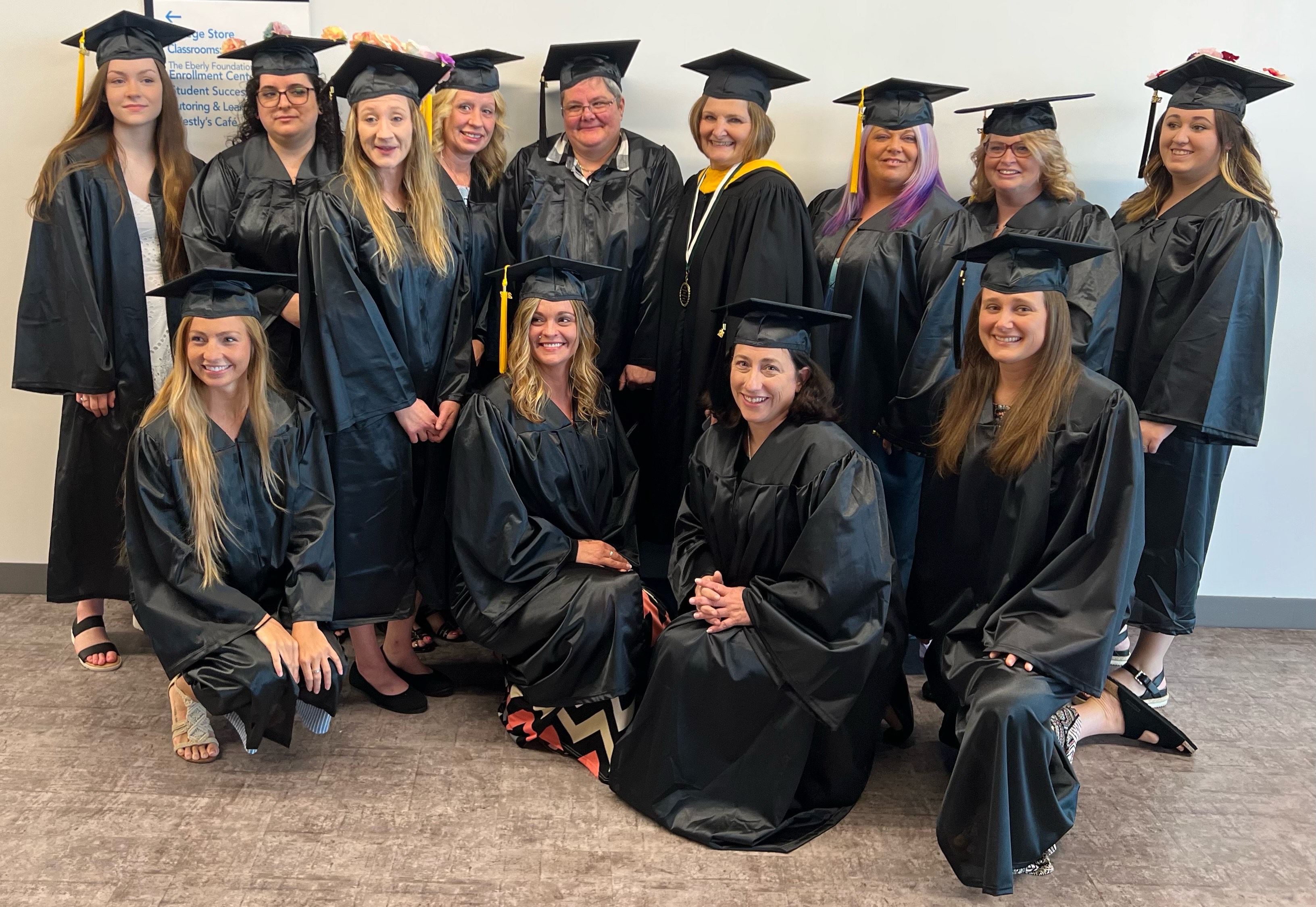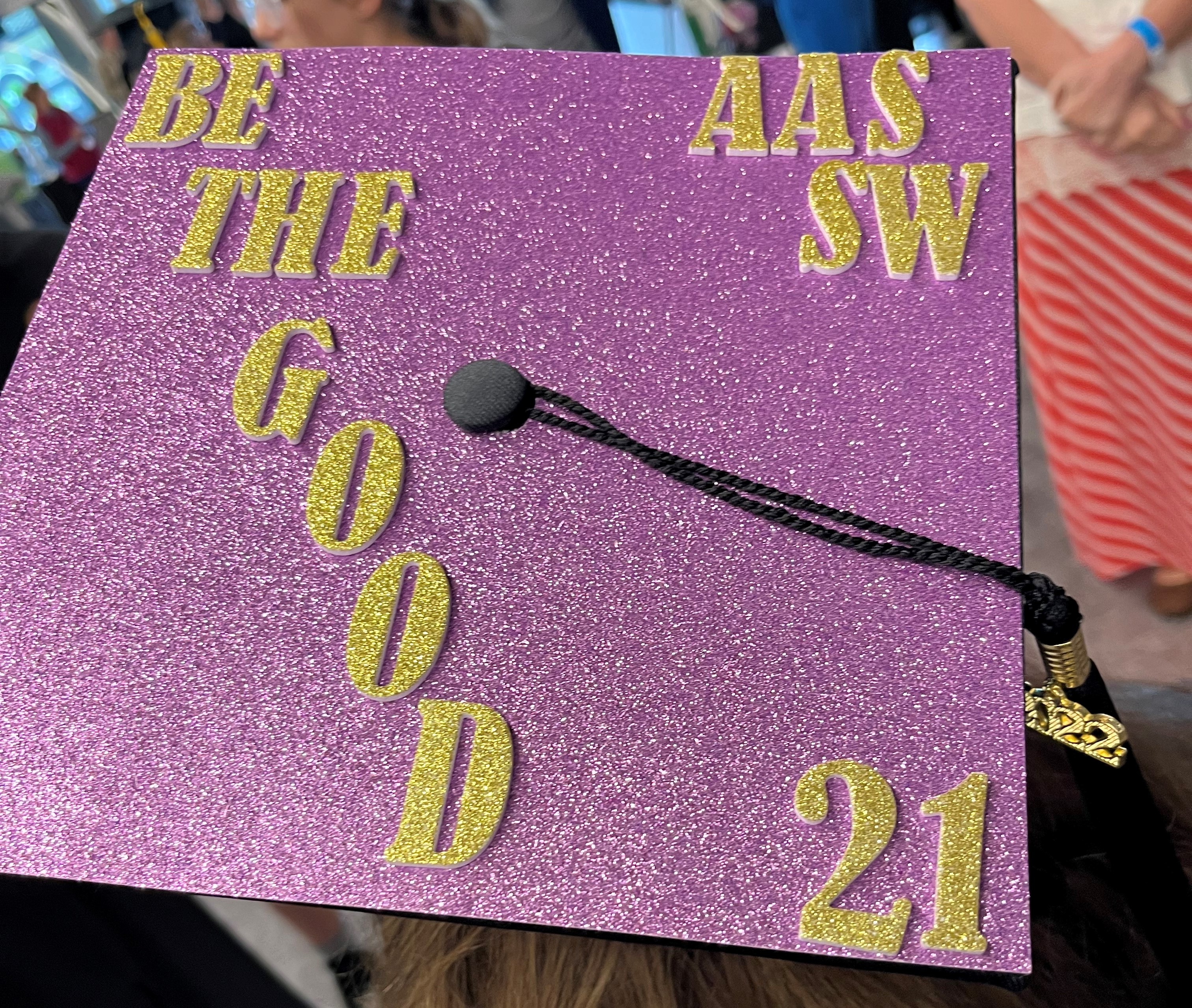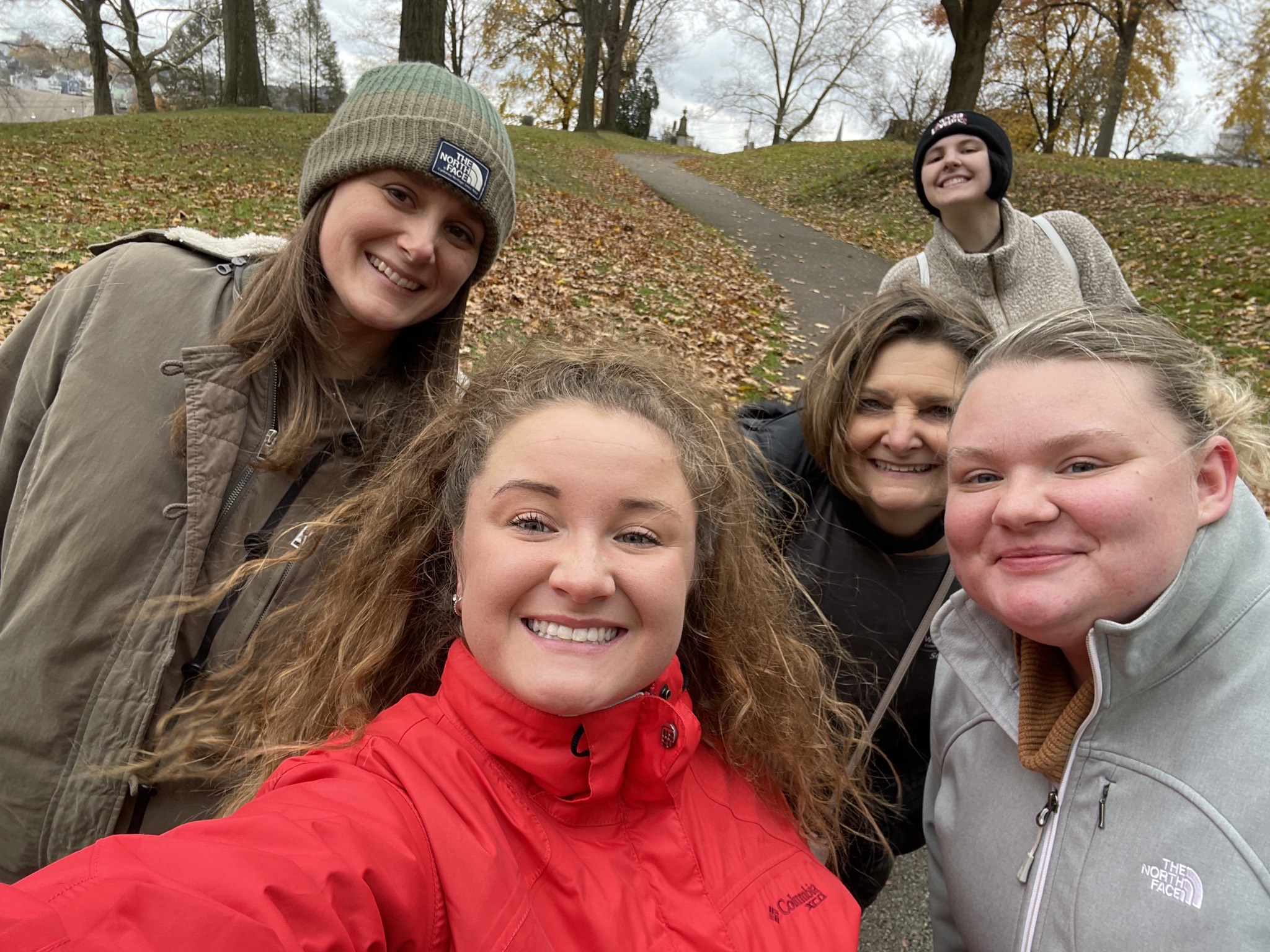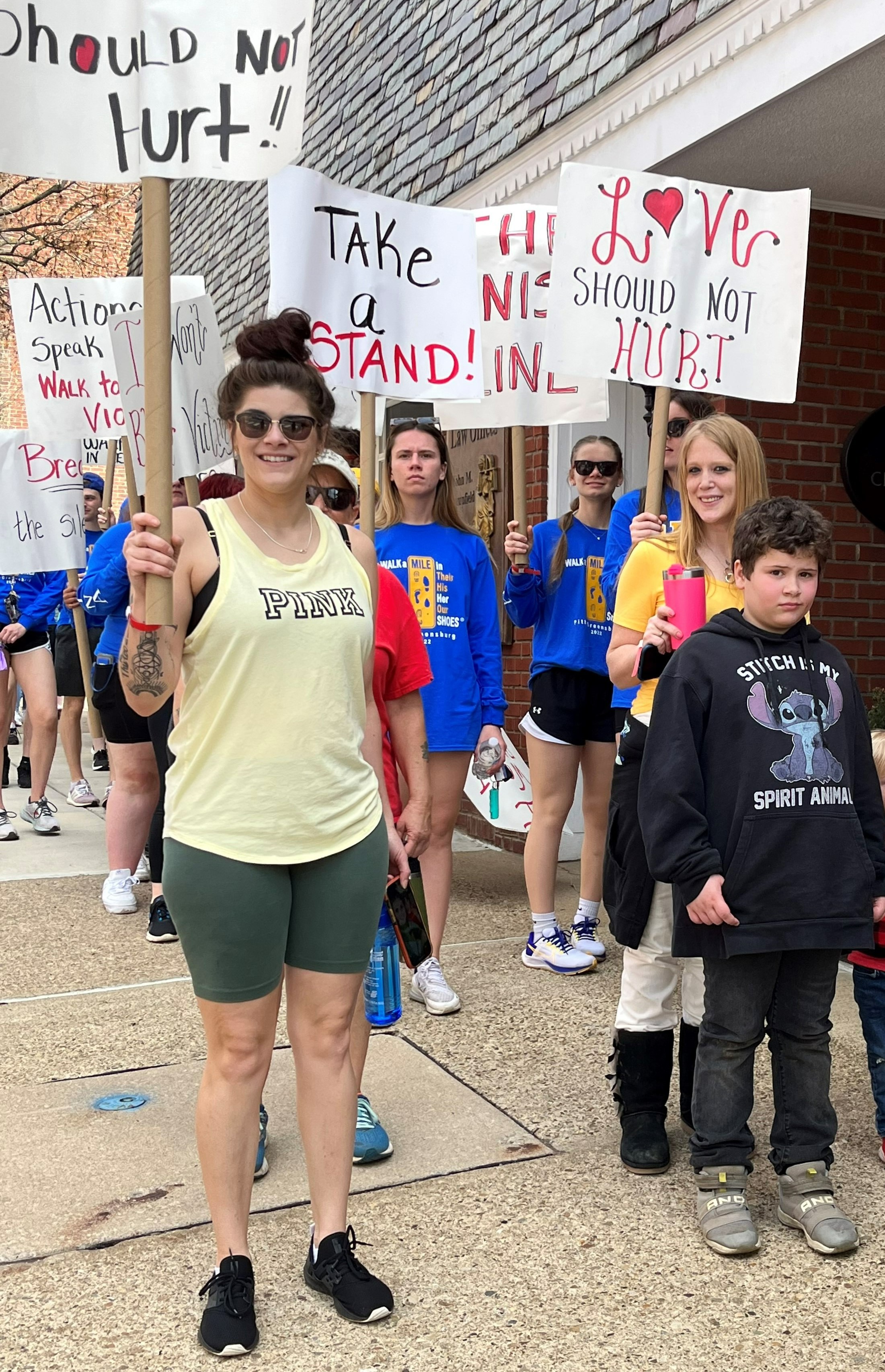Define You, Redefine the World

Westmoreland County Community College's Social Work program prepares future social workers to empower themselves, their clients, their communities and the world with a high-quality education in the classroom and beyond. Faculty, with varied work and practice experience who are active in the community, will teach you the tools necessary to make a difference, while instilling the desire for lifelong learning and the foundational skills you will need to continue on your educational journey, wherever it may lead.
Program Information
Associate Degree
The social work program consists of 62-65 credits and will include both general education classes, skills classes and theory. Each semester, the student will meet with the program director to schedule classes that will move them to graduation, job and transfer in the most time and cost effective manner. View Social Work, AAS in the College Catalog
PDV 101 First Year Seminar
This course provides strategies for adjusting to college culture and understanding
college expectation. Students will learn about the college's resources, services,
policies and educational technology. Students will develop skills in educational planning,
goal setting and time management, and will refine their learning strategies for academic
success. Social responsibility, cultural competence and integrity will be discussed
and practiced as necessary components for success in college and beyond.
SWK 155 Introduction to Social Work
This course is intended as an introductory course for the student who plans to work
with people in need. The course will provide the student with an overview of the information
and skills needed to effectively work with a variety of populations in their community.
The course will include information about the necessary personal qualities, service
delivery systems and basic skills. It will also provide an overview of the history
of the helping profession and how social policy influences the profession. Students
will become familiar with the service providers in the local area. Additionally, students
will examine their personal feelings and motivations related to becoming a helper.
PSY 160 General Psychology
General Psychology is an introduction to the study of human behavior. Psychology is
presented as both a biological and a social science. Facts, principles, processes,
theories and research are explored in the course of study. The course will include
the application of the scientific method, analysis of human behavior and synthesis
of the components and causation of human behavior.
SOC 155 Principles of Sociology
This course is designed to be a student’s first college-level sociology class. The
topics to be covered include the history of sociology, the methods, fields and vocabulary
of sociology; the social interaction of persons and groups; the process of socialization
and social structures; social institutions such as family, religion and education.
Through this course students should learn “what is sociology?” as well as how sociology
fits with other academic disciplines and how sociology can be used outside of the
classroom.
ENG 161 College Writing
This course covers the fundamentals of college writing including the paragraph, expository
essay patterns and the argumentative essay. Emphasis is placed on developing a coherent
thesis, writing concisely and clearly, and adapting ones writing to a particular audience.
In addition, it will foster an appreciation of cultural diversity, explain how experiences
and attitudes shape an individual’s reading and demonstrate how language can shape
thinking. This course also emphasizes self-editing, mechanics, grammar and word choice.
It provides the basis for students to produce a range of effective writing from technical
and business communications to research papers and critical essays. Prerequisite(s):
ENG 085 or placement. Corequisite(s): ENG 095
Math 100 or higher (if transferring to a four year, check the transfer guide).
ENG 164 Advanced Composition
This course further develops and refines the student’s abilities in expository and
argumentative writing, introducing the student to the methods, techniques and materials
of research. The written work of the course includes the completion of an in-depth
research paper done by the student under the instructor’s supervision. The course
continues to stress conciseness and clarity of expression; reviews mechanics implicit
in correction and revision of written composition; and teaches English usage and grammar
as needed. Prerequisite(s): ENG 161
SWK 157 Interviewing and Recordkeeping
As the follow-up course to HMS 155 with an emphasis on individual interviewing skills
in the helping services, this is a key course in the human services program as it
teaches essential information gathering and recording skills for the human services
worker. It is a very interactive course with much time devoted to practicing interviewing
skills with classmates. Recordkeeping skills include learning to distinguish between
objective and subjective information, how client files are organized and the methods
used to compile a client history and assessment. Prerequisite(s): HMS 155
PSY 161 Human Growth and Develoment
Using a developmental lifespan approach to human development, this course focuses
on biological, cognitive and social domains of development and their interplay. Emphasis
is on the importance of maintaining an ecological perspective. Major theories of human
development at all stages of the lifespan are discussed. Prerequisite(s): PSY 160
Microcomputer Concepts or Digital Photography
Elective
Electives will be scheduled in accordance with desired bachelor's program or place of employment.
SWK 160 Group Process
This course provides the basic knowledge needed to be an effective group leader and
member. Emphasis is on practical application of group process skills. Prerequisite(s):
HMS 155, HMS 157
SWK 162 Solution Building
This course is a follow-up to Interviewing and Recordkeeping Skills course. Its purpose
is for the student to learn basic counseling skills that help clients discover and
use their strengths and past experiences to helpthem identify solutions to their problems.
Prerequisite(s): HMS 155, HMS 157
SWK 171 Intro to Gerontology
This course provides an introduction to the biological, psychological and social issues
experienced by those who are aging. Students will learn the various stages and cycles
of aging and how society views and provides services to older adults. This course
is interactive in nature and requires interviews with older adults and community service
providers.
PSY 270 Abnormal Psychology
Abnormal Psychology is the study of mental disorders that are listed in the current
diagnostic system. A historical perspective, assessment and treatment are presented.
The individual mental disorders are explained from a descriptive, causative and treatment
perspective. Diagnostic statistical criteria are presented with each of the mental
disorders. Prerequisite(s): PSY 160
Elective
Electives will be scheduled in accordance with desired bachelor's program or place of employment.
SWK 170 Race and Diversity
This is an introductory course for the study minorities in the USA. The course will
expose students to the sociological perspectives on race, class and gender. This course
will also provide an overview of the history of various minority groups with emphasis
on the importance of culture and developing awareness and understanding of self and
others. Through readings and discussions, the course will focus on prejudice and discrimination
and the importance of understanding their role in a multicultural society. Prereq:
SOC 155
SWK 172 Drug and Alcohol
This course is an introductory course for the student intending to work with people
in a variety of settings, including the social services, health services, education
and criminal justice. This course will provide the student with an overview of substance
abuse and treatment issues. Focus will be on learning about the major categories of
abused substances, the nature of addiction, treatment and recovery and the impact
of substance abuse and addiction on specific populations.
PHL 161 Intro to Ethics
This course provides an overview of the main questions in ethics: What is a good life?
Does morality depend upon religion? What makes an action right or wrong? Are morals
relative or absolute? Students will examine these and other questions using a variety
of ethical theories. These theories will also be applied to concrete issues like animal
rights and euthanasia.
Electives (2)
Electives will be scheduled in accordance with desired bachelor's program or place of employment.
Social Work Certificate
On your way to an associate degree, earn your certificate in social work in just three short semesters. This will give the student the required skills to move into a direct care job while finishing the associate program. Each semester, the student will meet with the program director to schedule classes. View Social Work, Certificate in the College Catalog
PDV 101 First Year Seminar
This course provides strategies for adjusting to college culture and understanding
college expectation. Students will learn about the college's resources, services,
policies and educational technology. Students will develop skills in educational planning,
goal setting and time management, and will refine their learning strategies for academic
success. Social responsibility, cultural competence and integrity will be discussed
and practiced as necessary components for success in college and beyond.
SWK 155 Introduction to Social Work
An introductory course for the student who plans to work with people in need. The
course will provide the student with an overview of the information and skills needed
to effectively work with a variety of populations in their community. The course will
include information about the necessary personal qualities, service delivery systems
and basic skills. It will also provide an overview of the history of the helping profession
and how social policy influences the profession. Students will become familiar with
the service providers in the local area. Additionally, students will examine their
personal feelings and motivations related to becoming a helper.
Elective
SWK 157 Interviewing and Recordkeeping
As the follow-up course to HMS 155 with an emphasis on individual interviewing skills
in the helping services, this is a key course in the human services program as it
teaches essential information gathering and recording skills for the human services
worker. It is a very interactive course with much time devoted to practicing interviewing
skills with classmates. Recordkeeping skills include learning to distinguish between
objective and subjective information, how client files are organized and the methods
used to compile a client history and assessment. Prerequisite(s): HMS 155
SWK 172 Drug and Alcohol Dependency
Is an introductory course for the student intending to work with people in a variety
of settings, including the social services, health services, education and criminal
justice. This course will provide the student with an overview of substance abuse
and treatment issues. Focus will be on learning about the major categories of abused
substances, the nature of addiction, treatment and recovery and the impact of substance
abuse and addiction on specific populations.
SWK 160 Group Processsing
This course provides the basic knowledge needed to be an effective group leader and
member. Emphasis is on practical application of group process skills. Prerequisite(s):
HMS 155, HMS 157
PSY 160 General Psychology
Is an introduction to the study of human behavior. Psychology is presented as both
a biological and a social science. Facts, principles, processes, theories and research
are explored in the course of study. The course will include the application of the
scientific method, analysis of human behavior and synthesis of the components and
causation of human behavior.
What Will I Earn?
If you plan to stay in the region, there are many occupations related to this program degree and certificates. In the 10-county region* surrounding Westmoreland County Community College, the earnings for occupations in this field range from $14.02 - $27.56 per hour, with an average hourly wage of $20.56.
It is important to remember that wages vary based on level of education, experience, job location and other factors.
Source: Data provided by Lightcast™ (https://lightcast.io/) 2025.1
* 10-county region includes Allegheny, Armstrong, Beaver, Butler, Fayette, Greene, Indiana, Lawrence, Washington and Westmoreland.
Transfer Agreements
Westmoreland County Community College prepares students for an entry level career in social work and also to transfer to a four year school for their bachelor's degree. Westmoreland has transfer agreements with the following schools so when transferring, the student will be in their junior year, therefore saving both time and money.
-
The social work program is provided in the traditional classroom. Required Westmoreland electives to transfer: HIS 155, 156, 255, POL 155, BIO 155.
- The university offers a bachelor's, master's and doctorate degree in social work. Classes are conducted remotely. Required Westmoreland electives to transfer: SWK 163, POL 155, and BIO 107.
- The university offers a bachelor's degree in social work. Classes are conducted on ground. Required Westmoreland electives to transfer: SWK 163, POL 155, SPC 155.
- The university offers both a bachelor's and master's of social work degree. Classes are conducted remotely. Required Westmoreland electives to transfer: SPC 155, HIS 255, and POL 155.
- The behavioral health program is part of the adult degree program and is provided remotely. Three years of classes can be completed at Westmoreland with the fourth remotely with Seton Hill Behavioral Health. Required Westmoreland electives to transfer: BUS 158, ASL I, and ASL II.
- The social work program is provided in the traditional classroom. Required Westmoreland electives to transfer: HIS 155, HIS 156, ASL I, and ASL II.
- The social work program is provided in the traditional classroom. Required Westmoreland electives to transfer: SPC 155, HIS 255, SWK 163, BIO 155, HIS 155 or 156.
- The social work program is provided in the traditional classroom and online. Required Westmoreland electives to transfer: BIO 155, SOC 163, SOC 161.
Social Work Club
The social work club provides opportunities to volunteer in the community not only to gain experience in helping people but to network with social work professionals and learn the social service system. Become an officer or event coordinator and gain leadership skills.
Volunteer Opportunities
- Volunteer at campus events
- Volunteer at community events
- Bring your family
Leadership Opportunities
- Become an officer
- Build your resume
- Coordinate an event
Network
- Meet other students
- Meet more faculty and staff
- Make connections with professionals in the community
Meet and Greet
Meet those who will be a part of the student's educational journey - faculty, alumni and advisory board.
Faculty
The faculty for the social work program at Westmoreland have decades of experience in direct practice and bring those real world examples into the classroom. The faculty have experience working with children, adults and the elderly in areas such as poverty, mental health, healthcare and corrections.
Stephanie Turin, MSW, LCSW
Program Director, Full-time Faculty
Bob Brinker
Part-time Faculty
Alumni
Brooke White, MSW
Jessica Morrow, MSW
Advisory Board
The social work program advisory board is instrumental in keeping the program up to date by providing insight into changes in services delivery in the area. They also provide networking and practicum supervision.
- Amber Alberts, BASW
WIN Workforce Development Program Coordinator - Toni Antonucci, MSW, LCSW, SAP
Director of Advancement and Development
Westmoreland Community Action - Dr. Andrew Barnette
Dean - School of Art, Humanities, Social Sciences & Public Service
Westmoreland County Community College - Dr. Sheri Boyle, PhD, MSW
Associate Professor
California University of Pennsylvania - Betsy Brajdic, MA
Senior Program Advisor, Graduate & Adult Studies
Seton Hill University - Lyndsay Burrick, MSW, LSW
Assistant Director
Union Mission - Carla Colello
Licensed Clinical Social Worker
VA Community Based Outpatient Clinic - Renee Dadey, MSW
Social Worker
Redstone Home Health and Hospice - Lisa Dysert
Director of Human Resources
Adelphoi, Inc.
- James Galik
Founding Member
PFLAG Greensburg and Westmoreland LGBTQ Interfaith Network - Anna Joyner
Pittsburgh Community Services, Inc., Pardon Fellow - Amie McKeel, MSW
Quality Assurance Program Specialist - ESSA POC
Westmoreland County Children's Bureau - Breane Minardi, MSW
Director of Clinical and Case Management Services
Westmoreland Drug and Alcohol Commission - Thomas A. Nelson III, MSW
Therapist/Counselor
Penn Highlands Connellsville - Trisha Simon
Alternative Living Solutions - Jean Slusser
Founding Member
PFLAG Greensburg and Westmoreland LGBTQ Interfaith Network - Ashlee Weyandt, BSW
Aging Care Manager II
Westmoreland County Agency on Aging


